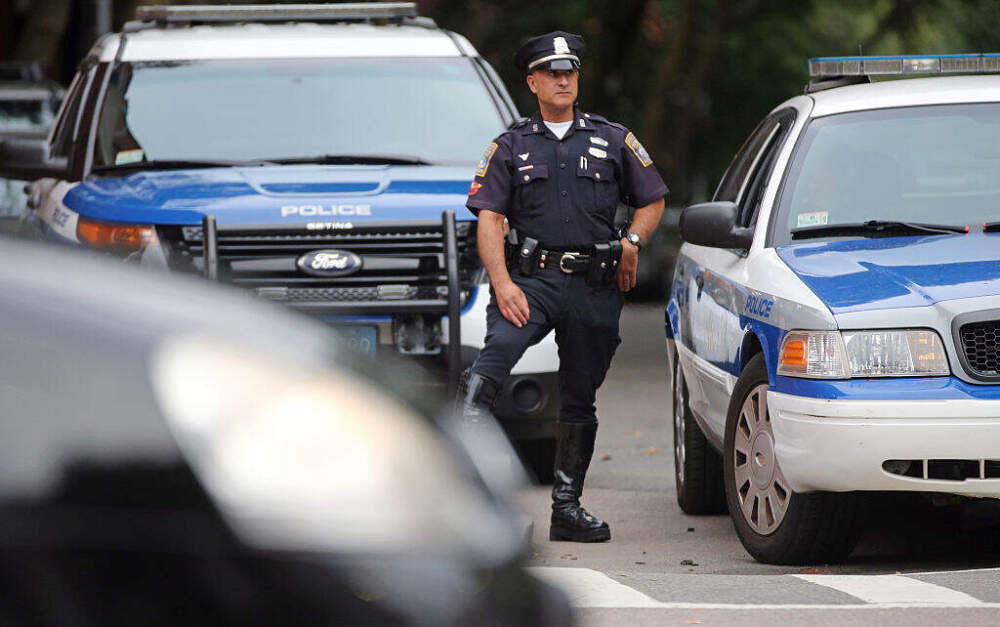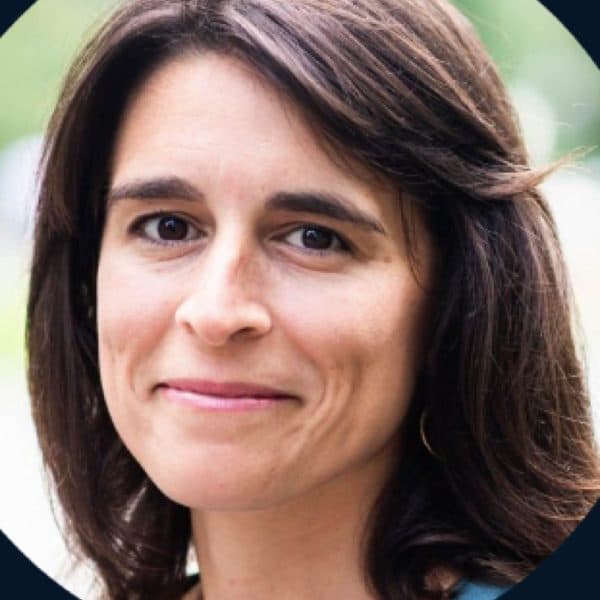Advertisement
Commentary
More funding for Boston's police intelligence center is a mistake

Orlando was a high school student, a part-time restaurant worker, a son and a brother, when a mundane disagreement in a Boston high school cafeteria led to his detention and deportation.
The unsubstantiated rumor of another teenager — alleging that Orlando was affiliated with a gang — had made its way into a school incident report, which was subsequently entered into the Boston Regional Intelligence Center (BRIC) gang database. Shortly thereafter, Immigration and Customs Enforcement (ICE) showed up at Orlando’s family home, held him in immigration detention for over a year, and deported him back to El Salvador. He’d been living with his family in the U.S. for about four years. (I’m referring to Orlando by his middle name because he fears for his safety and for the safety of his family.)
Earlier this month, the Boston City Council approved $3.4 million in additional funding to the BRIC — funding that will expand exactly the kinds of information sharing programs that led to Orlando’s wrongful detention and deportation, as well as a host of other harms. This dramatic expansion comes at the expense of our privacy, and our civil rights.
The BRIC is a fusion center, a centralized site of massive information sharing between law enforcement agencies. It’s also, increasingly, a popular surveillance tool.
Founded in 2005, the BRIC is largely funded by the federal Department of Homeland Security and, though controlled by the Boston Police Department with funding approved by the Boston City Council, the BRIC oversees the Metro Boston Homeland Security Region (MBHSR) which includes the communities of Boston, Brookline, Cambridge, Chelsea, Everett, Quincy, Revere, Somerville and Winthrop.
Earlier this month, the Boston City Council approved $3.4 million in additional funding to the BRIC ... This dramatic expansion comes at the expense of our privacy, and our civil rights.
Fusion centers like the BRIC are able to share and distribute information both vertically — down to local law enforcement and up to the federal intelligence community — and horizontally, across a network of fusion centers.
In the wake of 9/11 terrorist attacks, fusion centers were promoted as a critical tool in counter terrorism efforts. In the early aughts, fusion centers primarily targeted Muslim and Arab communities for surveillance and enforcement. While that discriminatory enforcement continues, today fusion centers have expanded to frequently collect data about noncitizens that can be rapidly shared and used for the purposes of immigration enforcement, detention and deportation.
Advocates have identified five significant problems with fusion centers. They include ambiguous lines of authority and a lack of clarity about which jurisdictional rules apply; private sector participation by corporations; military participation; data mining that threatens privacy protections; and excessive secrecy, combined with limited public oversight and transparency.
While much of the BRIC’s work remains shrouded in secrecy, public records requests have revealed plenty that should trouble us. For example, between 2007-2010, BRIC surveilled lawful political activity in Boston, and wrote intelligence reports on anti-war groups and local activists like Howard Zinn, the National Lawyers Guild and the ACLU. Between 2014-2016 BRIC surveilled the social media of Muslims, as well as anyone using the #BlackLivesMatter hashtag. And of course, Orlando’s detention and deportation and the BRIC’s “gang database,” which profiles people in Boston using racist indicators to determine gang membership. Records reveal that 97.7% of people in the BRIC’s gang database are people of color, and more than 75% of the people in the database are Black men or teenagers. Just last year, the First Circuit Court of Appeals in Boston expressed serious concerns about the BRIC’s gang database and the flawed system for determining who is included.
While much of the BRIC’s work remains shrouded in secrecy, public records requests have revealed plenty that should trouble us.
But what about public safety? All seven Boston city council members who voted in favor of additional funding for the BRIC are white; all members of color opposed increased funding. Michael Flaherty, who voted in favor, stated decisively that, “BRIC helps solve crimes.” In fact, there is little evidence that fusion centers like BRIC have actually provided any kind of meaningful improvements to public safety or the pursuit of counterterrorism, their initial stated purpose. On the contrary, the unregulated and relentless sharing of sensitive information with little to no oversight or accountability has yielded massive privacy breaches. For example, in a 2020 data breach, hackers exposed hundreds of thousands of sensitive records from more than 200 state, local and federal agencies collected in these fusion centers. And presently, there is no mechanism to hold the BRIC accountable for errors or misconduct.
The BRIC, and fusion centers like it, have long produced significantly flawed analysis while also relentlessly targeting Black and brown communities and lawful political activity. They’ve done so under the guise of counterterrorism and public safety, though the evidence that fusion centers have improved either is negligible at best.
Orlando spent more than a year in a Boston jail; I was his lawyer as he defended against his deportation. He had no idea that five years later his story might be part of an important debate about privacy and civil rights in our city. Orlando’s case, while perhaps one of the most public, is not the only example of a young person whose life has been devastated by the BRIC. I hope the Boston City Council, and Mayor Wu, will reconsider their support of this deeply racist, deeply flawed system, before more young people like Orlando — who are members of our classrooms, families and communities — are harmed.
